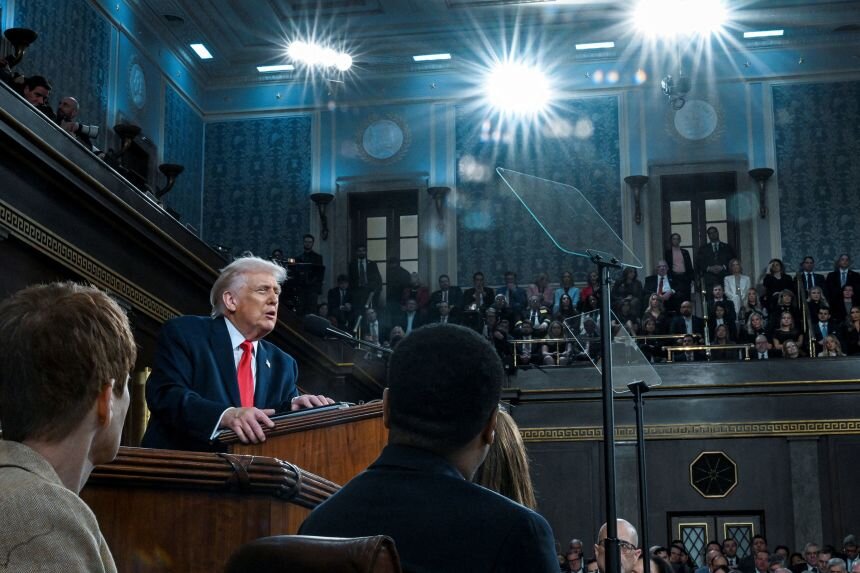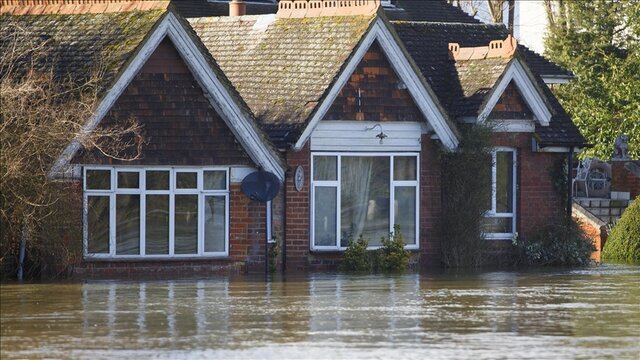How the UN Gaza resolution creates new foreign ‘mandate’ over Palestinians
How the UN Gaza resolution creates new foreign ‘mandate’ over Palestinians

An international force will use “all necessary measures to carry out its mandate” in Gaza, a newly approved United Nations Security Council resolution stipulates.
The resolution puts US President Donald Trump in control of the Palestinian enclave, with multinational troops in an "International Stabilisation Force" (ISF) overseeing his 20-point plan for its future.
The term “mandate” is all too familiar in the context of foreign involvement in the affairs of Palestinians.
“This is a classic colonial scheme which totally disregards the rights and aspirations of the indigenous people,” Avi Shlaim, the British-Israeli historian, tells Middle East Eye.
“In this sense, it is comparable to the British Mandate for Palestine.”
Helena Cobban, author of the book Understanding Hamas: And Why That Matters, said that on one level, "mandate" is just a technical term.
“But for everyone throughout West Asia, it carries heavy historical baggage,” she told MEE.
“The post-WW1 mandates awarded to Britain and France in formerly Ottoman areas were predicated on the inherently colonialist assumption that the peoples of those regions somehow weren't ‘ready’ for self-governance.”
Almost a hundred years later, global powers are once again taking charge of Palestinian territory for what is described as a “transitional” period.
Resolution 2803, approved on Monday by a vote of 13-0 with two abstentions, outlined a plan for a “board of peace” to oversee multinational troops, Palestinian technocrats and a local police force for a period of two years.
The resolution has been rejected by Hamas and several other Palestinian factions, but is notably backed by the Palestinian Authority (PA).
It makes a vague non-committal reference to “Palestinian self-determination and statehood”, if a number of conditions are met.
'This is a classic colonial scheme which totally disregards the rights and aspirations of the indigenous people'
- Avi Shlaim, historian
“It is putting conditioning on something that is a right: the right to self-determination,” Daniel Levy, a British-Israeli analyst and former peace negotiator, told MEE.
“It’s turned the upholder of international law, the UN, into a body that undermines that.”
In addition to 13 members of the UN Security Council, the text was endorsed by a number of Muslim-majority and Arab states, including Egypt, the UAE, Qatar, Saudi Arabia, Turkey, and Indonesia.
Russia and China abstained from the vote. Though Russia called the resolution "colonial", importantly, the pair did not use their vetoes.
Levy said that PA support for the plan provided cover for Muslim-majority and Arab states to back it, which in turn provided cover for Russia and China not to veto.
“Once you had the Muslim-majority states supporting it, no one was going to break ranks,” Levy said.
Reluctance to deploy
Hamas rejected the resolution, stating that it did not accept the notion of disarmament and that the text failed to meet the rights and demands of Palestinians.
The group’s unwillingness to disarm creates a problem for multinational troops.
The likelihood of international peacekeeping forces deploying to Gaza to take part in destroying “terror” infrastructure, as the resolution posits, while Hamas is still present, is low.
Shlaim noted that Israel’s military had “failed to disarm Hamas after two years of relentless bombardment”.
“So how will an international body do it? And what Arab country will want to do Israel’s dirty work for it?” he asked. “This is a plan for indefinite Israeli control of Gaza.”
Cobban agreed that there would be reluctance on the part of regional actors.
“If the long-vaunted Israeli military was unable to vanquish the Palestinian resistance in Gaza, then no planner in the general staff of any of the Arab or Muslim militaries contemplating joining the ISF will want their military to try to do this,” she said.
Hamas has expressed some willigness to roll back its weapons and forces: it has alluded to decommissioning weapons and folding its capabilities into the military of an independent Palestinian state.
Cobban notes that this is the norm for anti-colonial fighting forces through the decolonisation process through history.
With the ongoing impasse over disarmament, implementation of the resolution remains uncertain.
But in any case, the fact that the UN Security Council rubber-stamped a Trump-administered plan with the partial blessing of Israel is highly significant.
Cobban questioned why so many members of the Security Council “caved so completely”, and why Russia and China failed to use their vetoes.
“What happened at the UNSC yesterday has brought infamy to the United Nations itself,” she said.
“The organisation and everything it represents is now at a crisis point from which it may take a long time to recover, if indeed it can ever do so.”







